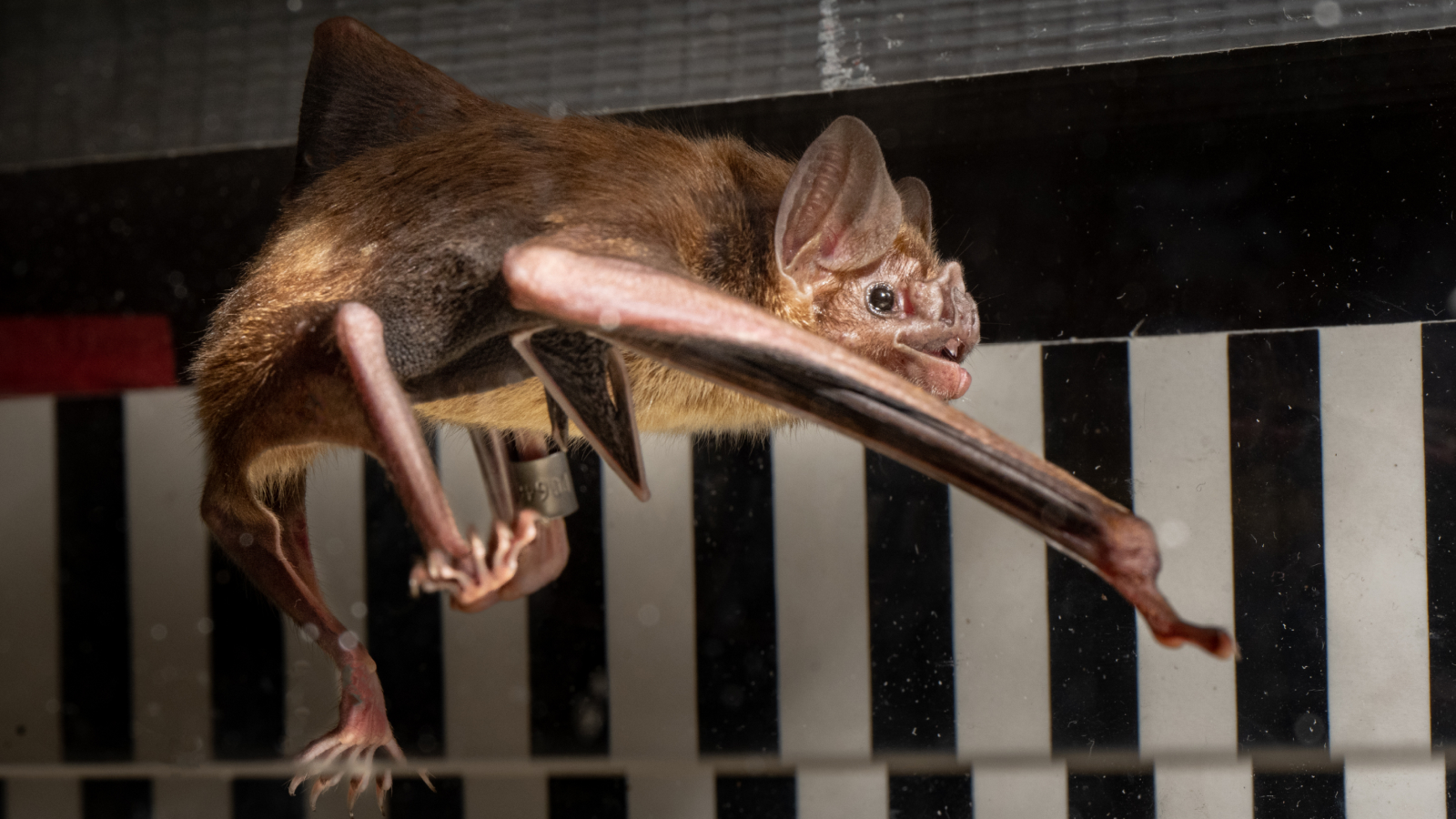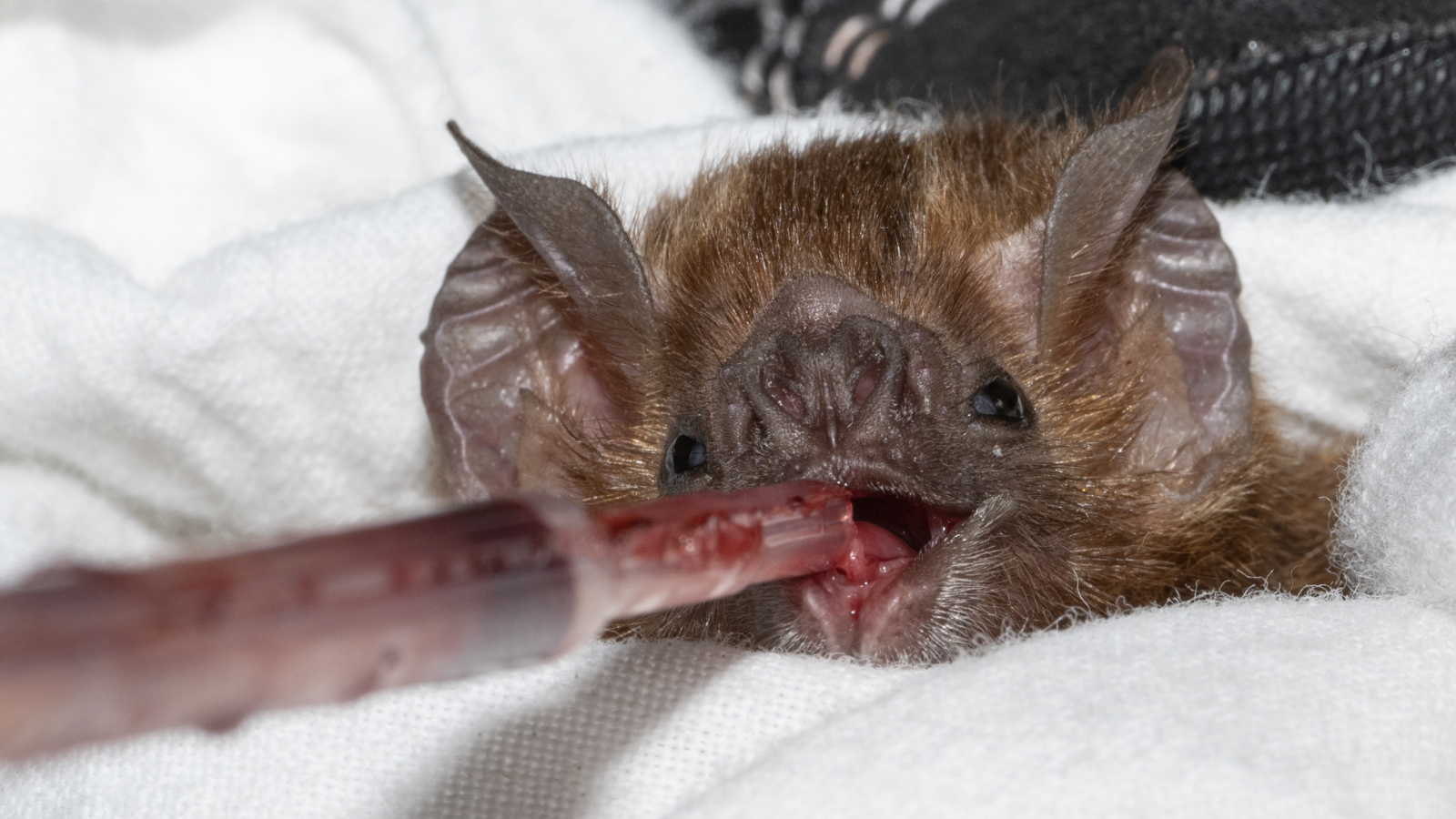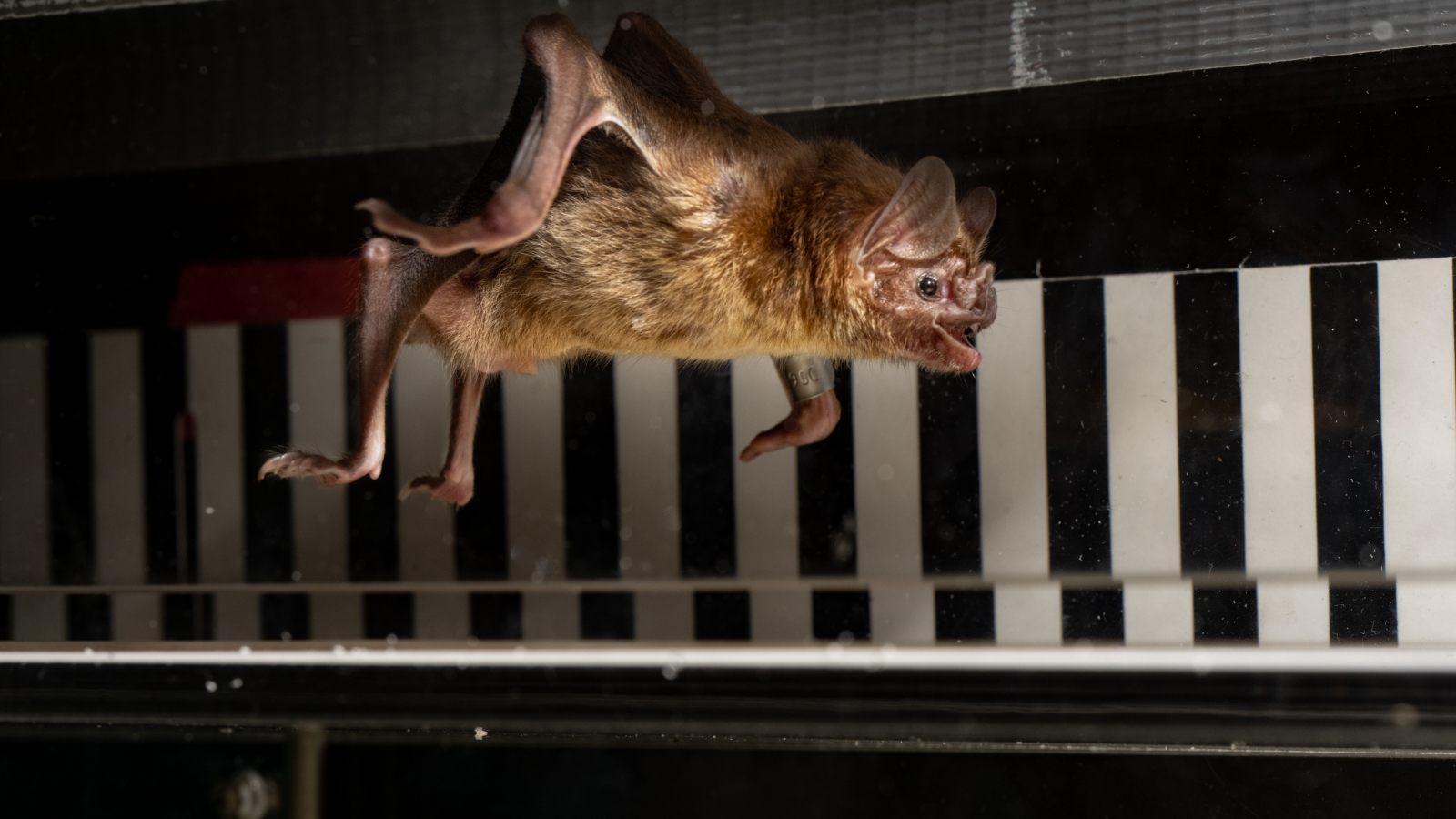
Vampire bats rely on blood-derived amino acids to fuel their activity, scientists have discovered after making the animals work out on tiny treadmills.
Most mammals, including humans, rely on carbohydrates and fats from their complex diets to fuel physical activity. However, vampire bats exclusively consume blood, which is very low in carbohydrates and fats but high in protein. This raises the question of whether vampire bats instead obtain most of their energy from the protein they consume — similar to bloodsucking insects.
"Whereas most mammals, like us, rely on carbohydrates and lipids to fuel our activity, these fuels are not abundant in the vampire bat diet, suggesting they might not rely on those fuels like us," study lead author Kenneth Welch, an associate professor of biology at the University of Toronto, told Live Science in an email.
There are three vampire bat species: the common vampire bat (Desmodus rotundus), the hairy-legged vampire bat (Diphylla ecaudata) and the white-winged vampire bat (Diaemus youngi). All are found in warm regions of the Americas, including Mexico, South America and Trinidad, according to the San Diego Zoo. They live in colonies of 20 to 100 individuals and are the only mammals that are obligate blood feeders.
Related: Scientists unlocked the secrets to bats' heavy-metal growls
The common vampire bat is the only vampire bat species that's capable of running; it uses a unique bounding gait to move quickly on the ground. Much like gorillas, they use their front limbs to propel themselves in short bursts so they can move quickly toward their prey.

In the new study, published Nov. 6 in the journal Biology Letters, scientists captured 24 adult common vampire bats along known flight paths in the tropical forests of Belize. The bats were held for up to 18 hours to make sure their last meal was fully digested. The vampire bats were fed with cow's blood enriched with one of two labeled amino acids — glycine or leucine. Each bat was then placed into a treadmill chamber so scientists could measure the ratio of oxygen to carbon dioxide (CO2) and calculate the rate of metabolic activity at different running speeds.
To determine if the amino acids were being used for energy, the researchers used a specialized machine with infrared lasers to detect the presence of certain carbon isotopes in the exhaled carbon dioxide.

The results revealed that the ratio of oxygen to carbon dioxide remained consistent across all treadmill speeds. This indicated that the vampire bats were using amino acids as their primary fuel source, the researchers said. In other mammals, the ratio increases with the intensity of exercise, mirroring the shift from burning lipids to burning carbohydrates.
The scientists also found that the vampire bats rapidly absorbed the free amino acids within just 10 minutes of consuming their meal.
"What was impressive was how quickly that labeled CO2 showed up, and how abundant it was from these bats," Welch said. "The rapid appearance of their labeled break-down product indicated the bats were oxidizing ("burning") those amino acids in their muscles while walking/running."
Although this method of energy generation is rare among mammals, previous studies of bloodsucking invertebrates like tsetse flies (Glossina) and female mosquitoes of the species Aedes aegypti found that they, too, obtain their energy from the breakdown of amino acids.
"What we have shown in this study is that running vampire bats show a similar pattern of reliance on blood-meal amino acids to fuel their intense exercise as do these [bloodsucking] insects," Welch said.







